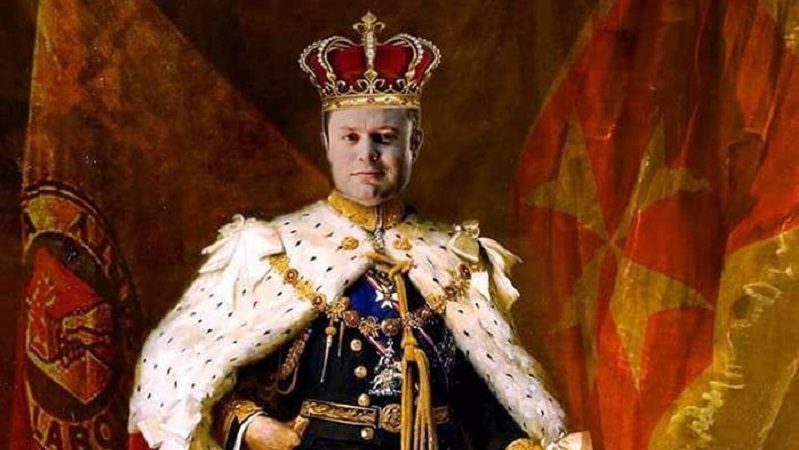You would think the Maltese would be more adept at identifying parody when they see it, given their love of pantomimes. Sadly, unless it’s delivered by a man in drag and a screechy voice many seem to miss it.
So when Caruana Galizia wrote a parodic imitation of the trolls who frequented her page – exemplifying their language, their tone, and their vitriol – they took her literally. Even when she explained it to them in the same post.
The sentiment behind it was genuine – Daphne hated former Labour Prime Minister Dom Mintoff in the same way so many in Libya hated Mintoff’s long-time friend Gaddafi. And just like so many rejoiced at Gaddafi’s grisly demise, Caruana Galizia was not alone in revelling in the death of a tyrant.
The New York Times called Mintoff a “secretive, ruthless…unpredictable tyrant” despite the political cult built around him that calls him ‘is-salvatur’ (saviour) to this day.
In missing the parody, they missed the point of Caruana Galizia’s piece. They missed that she was reflecting themselves back at them.
As a result you’ll often see selected screenshots of what she wrote about him floated about by trolls (because they’ve usually never read the full thing or don’t much care for context) as an example of why Caruana Galizia was a “hate blogger”.
It was a term fed to them by being repeated countless times by Joseph Muscat, his MPs and the government officials he appointed. They are still doing this almost a year after her assassination under their watch.
What is most remarkable – and telling – is how these reactionaries often couch their vitriol in the pious notion that you should never speak ill of the dead. As if death absolves everyone of their crimes in life. And they also miss the blatant hypocrisy when the same people who chastised Caruana Galizia for her merriment at Mintoff’s death, now hungrily round on her memory and legacy and one-up it by also attacking her family.
When people have banked their whole existence on a person or Party, they will defend it like rabid dogs, lost in a solipsistic bubble of self-preservation and survivalism. There’s no altruism to this – they’re not doing it for the good of their countrymen. They’re driven by the fear that their own individual world-view is being called into question.
When Caruana Galizia criticised Opposition Leader Adrian Delia, his supporters turned on her too. Both these reactions are the by-product of the slavish adulation of political leaders in the tribal politics that defines Malta. But political cults don’t sit well in a democracy.
Which is why Muscat’s loudest supporters have such an ambivalent relationship with freedom of speech, freedom of protest and freedom of information. Demagoguery and leader worship cannot sustain a democracy.
A sharp wit, an incisive eye, a surgical pen or a loud voice are not conducive to political cults. Conventional reverence and the status quo cannot withstand the glare of scrutiny.
Democracy is not a fait accompli. It can never be taken for granted. It is a fire that needs to be kept burning where others would smother it – which is why a majority in the voting booth alone is not enough. Majorities can come crashing down upon a free society like the Mediterranean waves on drowning refugees.
Democracy is a set of principles that need to be upheld, even before the will of the majority. This is why Muscat’s discourse that majority rule trumps all is dangerous.
To keep that fire burning so that successive generations may enjoy its warmth, you need to throw those sacred cows into that fire, like Caruana Galizia did.
Ultimately, before you can hold power to account you need to be able to interrogate yourselves. If you don’t like the reflection, you cannot blame the mirror.












